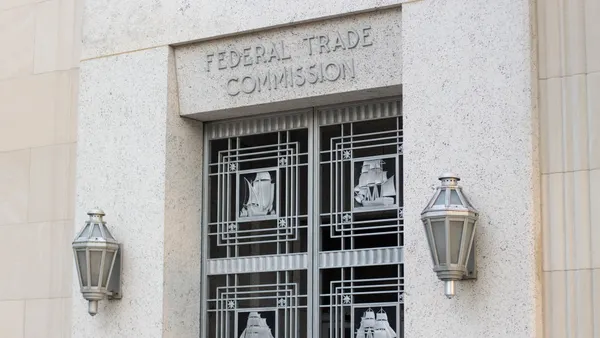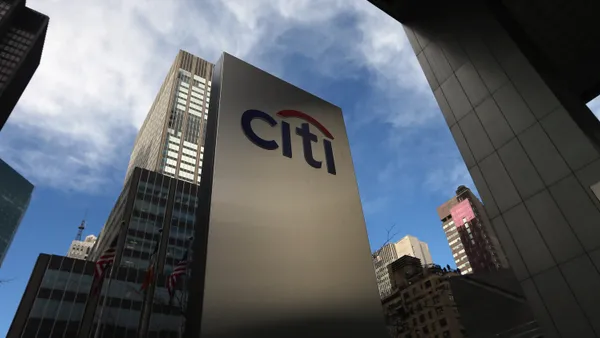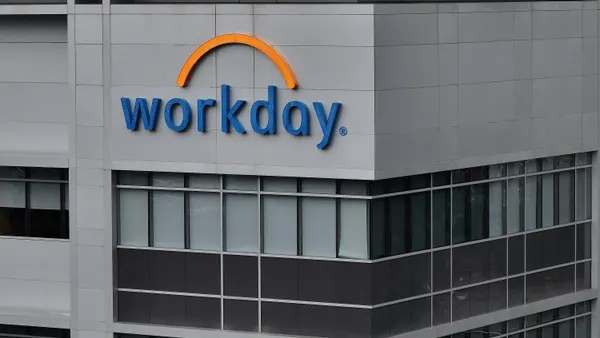Dive Brief:
- California tech recruiter Epik Solutions agreed to pay $71,916 to resolve allegations by the U.S. Department of Justice that it violated the Immigration and Nationality Act by discriminating against U.S. workers in favor of foreign H-1B visa holders, DOJ announced June 10.
- The charges came after investigators from DOJ’s Immigration and Employee Rights section, a component of the agency’s civil rights division, found that, allegedly without legal justification, Epik Solutions placed numerous job ads stating that certain positions were open only to applicants with H-1B visas, according to the settlement agreement.
- “A top priority of the Justice Department’s Civil Rights Division is protecting American workers from unlawful discrimination in favor of visa workers. Companies engaging in such discrimination are on notice that the days of the federal government looking the other way on American workforce protection are over,” Assistant Attorney General for Civil Rights Harmeet K. Dhillon stated in the announcement.
Dive Insight:
The settlement highlights the broad scope of the Trump administration’s efforts to crack down on illegal immigration, particularly as it relates to alleged anti-American bias in U.S. workplaces.
This can get complicated for employers because it requires them to be on top of several – sometimes intersecting — laws and regulations, which are often enforced by different federal agencies.
For instance, in 1990, an amendment to the INA created the H-1B classification for foreign workers to be temporarily hired in the U.S. for specialty occupations, according to a U.S. Department of Labor fact sheet.
The intent was to help employers who couldn’t obtain needed business skills and abilities from the U.S. workforce, the fact sheet explains.
However, to protect both U.S. employees from being adversely affected by the employment of H-1B workers and the H-1B workers themselves, employers must attest to DOL that they will meet certain standards when employing H-1B workers, including that they will adhere to specific pay requirements.
The pay issue was at the crux of a December 2024 report from university researchers, estimating, based on DOL 2005 salary data publicly released in 2014, that the accounting firm Deloitte paid newly hired H-1B accountants 10% less than U.S. workers in similar roles.
Deloitte countered that the researchers’ data was incomplete and hadn’t been validated. It said it complies with all immigration regulations, provides competitive wages and uses the visa program to complement its workforce with highly skilled professionals, many of who are graduates of U.S. colleges, to meet its business needs.
Issues related to hiring H-1B workers can also arise under Title VII of the Civil Rights Act of 1964, which prohibits employment discrimination on the basis of national origin, Ogletree attorneys noted in a March analysis.
The attorneys pointed to a February press release from EEOC Chair (then Acting Chair) Andrea Lucas advising employers the agency would prioritize “protecting American workers from anti-American national origin discrimination.”
To achieve this priority, Lucas said the EEOC planned to increase “enforcement of employment anti-discrimination laws against employers [and staffing agencies] that illegally prefer non-American workers.”
The Ogletree post also predicted the DOJ will step up its enforcement of the INA’s employment-related provisions, which prohibit discrimination on the basis of citizenship status, including discrimination against U.S. citizens, the attorney said.
According to the settlement in the Epik Solutions case, DOJ said it has reasonable cause to believe the company — through its job ads — engaged in citizenship discrimination against U.S. workers.
Under the agreement, Epik Solutions must provide training to any employee, recruiter, contractor or agent involved in its recruiting, referral, hiring or employment eligibility process on how to avoid discrimination prohibited under the INA.
Epik Solutions also may not agree to a client’s request or preference to exclude protected workers from employment opportunities unless it obtains written proof from the client demonstrating the legality of the request, the settlement states.














